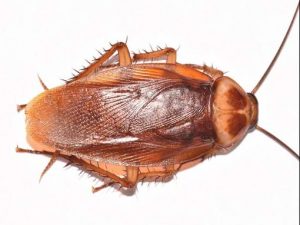Do cockroaches give you the heebie-jeebies? Does the sight of one scuttling along the ground cause you to jump back in disgust? Quite commonplace in New Zealand, you’re likely to pick up the phone and summon the pest-controller. And for good reason, these little insects are uninvited guests, potentially spreading disease, worsening health conditions like asthma, and reproducing rapidly. Once an intrusion gets comfortable, it can be quite difficult to manage.
The positive thing is that of 4,500 species in the world, only 60 are found in our homes. On top of that, we can break down the two most common types and go forth with a strategy from there.
German vs. American Roaches. What’s the difference?
In new Zealand the biggest cockroach pests are American and German cockroach varieties. You can find both in damp, dark places. Your bathroom and kitchen are cockroaches favourite chilling spots. Surviving up to a month without water and several months without food, they are difficult to get rid of.

American cockroach (Periplaneta americana)
American cockroaches are larger and dark brown. They prefer the outdoors – but if they have easy access to food and water, they’ll make themselves right at home. Another concerning point -they can fly.

German cockroach (Blattella germanica)
German cockroaches are smaller. They’re likely hanging out in your kitchen or bathroom, and they prefer an indoor lifestyle.
Are cockroaches dangerous?
Cockroaches carry diseases such as dysentery, salmonella and diarrhoea. As they eat a range of food, ranging from faecal matter to food fit for human consumption, they can pick up pathogens and contaminate food or surfaces by spreading their waste and saliva.
As these insects move about your home, they also shed body parts and waste matter. Similar to dust-mites, parts of the cockroach contain specific proteins and allergens that can cause asthma symptoms.
How do you prevent cockroaches?
Prevention is always easier than handling an intrusion. Properly storing food and disposing of waste are the two most effective ways to do this. But you can also make sure to;
- Wipe down all surfaces – don’t leave any crumbs lying about, that’s just low hanging fruit!
- Don’t leave dirty dishes in the sink, or to ‘soak’ overnight
- Take out rubbish regularly
- Seal around windows, under doors and pipes; cockroaches can squeeze into even the tiniest of cracks!
- Bring in pet food bowls over night or clean them regularly
- Keep dense vegetation away from your home
- Keep wood piles away from your home – this is good practice to keep any creepy-crawlies out of your home
What do I do if I have a cockroach infestation?
The outdoor, American species can be managed with a glue board, spray or natural pesticide – even a shoe if you’re fast enough.
On the other hand, the indoor-loving German species may be more difficult to eliminate. This not to say that you won’t find an infestation of the American species, but German cockroaches are more common in the home and want to stay there.
The reproductive cycle of a roach is quick. Each month there will be a whole new intrusion as the population that was previously laid reaches maturity. And on the cycle continues. This means that ideally pest control services would provide you with treatment on a monthly basis to catch the adults before they lay their eggs. Realistically, your technician visits 4 times a year and any more visits can become quite costly for you. There are some steps that you can take in between pest-control treatments;
- Vacuum up all the roaches you can see. This provides immediate population control. Make sure you dispose of them well.
- Use a cockroach bait. Those found in the supermarket are normally lower toxicity and less effective so it may be worth investing in some professional grade sprays and gels.
- Sprays can be used in areas that cockroaches frequent. Window cracks, skirting boards, doorways etc.
- Gels can be left for recently laid young. Make sure you don’t leave gel where you have used spray as spray renders the bait ineffective.
- Use cockroach traps. These will catch those who aren’t tempted by the bait.
Keep it up – consistency will snuff the infestation out eventually. Professional pest control services along with treatments in between will deplete population numbers. Eventually, your home will be yours again!


